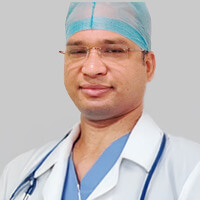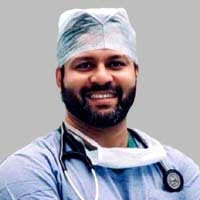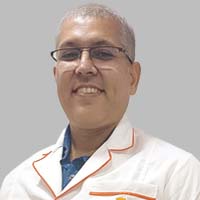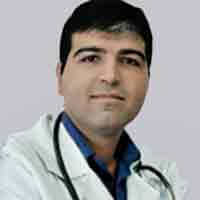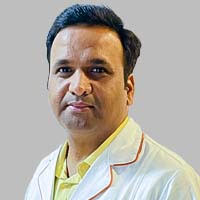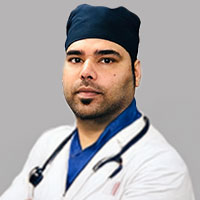Why is Total Knee Replacement Surgery Required?
Total knee replacement surgery becomes necessary if:
- Arthritis or rare destructive knee joint diseases have severely damaged your knee
- Simple activities like walking, climbing stairs become very painful
- Sitting for long hours or lying down in one position also becomes painful
- Walking supports become of no use
- Medications and non-surgical treatments are useless to alleviate knee pain
- Knee joint has been so severely damaged due to accident or injury that it cannot be healed with non-surgical treatments
People suffering from above mentioned factors become suitable candidates for total knee replacement surgery.
Pre-operative Preparation
In pre-operative preparation phase, doctor will first review all your current medications that you are consuming. Anti-inflammatory and blood-thinning medications may be discontinued or adjusted before the surgery.
Secondly, doctor will evaluate hip and ankle joint carefully to ensure optimal outcome and quick recovery. Since, these joints lie near to knee joint, they have to be in good health. If these joints also pain severely, then knee replacement surgery will not yield significant improvement.
Thirdly, doctor will tell you to undergo routine blood test to assess symptoms of anemia and infection. You will also have to undergo liver function test and kidney function test to check possibility of abnormal metabolic rate. ECG and chest X-ray are also conducted prior to the surgery to exclude any risks to heart and lungs.
Lastly, if you weigh above 200 pounds, the surgery will not yield permanent or good result as excess weight will exert undue strain on your knees.
Day Before Surgery
- On the day before the surgery, doctor will check your vitals like blood pressure, heart beat rate, body temperature, etc.
- Since surgeon will administer general anesthesia, doctor my prescribe you some antacids and laxatives to keep your intestines clean and empty.
- Fasting for a night prior to the surgery is essential.
- Also, you need to relax and be optimistic about the outcome of the surgical procedure. Relaxation will clear your mind off worries and induce positive thoughts.
- Arrangements for blood transfusion should be made in order to avoid last minute hustle.
Procedure Day
On the day of surgery, again your vitals (blood pressure, body temperature, pulse rate etc.) will be checked. The area of knee will be cleaned with an antiseptic lotion to get rid of all the bacteria. Hair from that area will also be removed. Patient has to wear surgical gown which is already sterilized to reduce chances of infection.
Methods/Techniques of Total Knee Replacement Surgery
To perform total knee arthroplasty, anesthesiologist will first administer general anesthesia. The procedure of total knee implant is explained in following steps:

- Orthopedic surgeon will make an incision across front portion of the knee to reach knee cap which in scientific terms is called patella. There are two approaches of total knee replacement surgery - traditional knee replacement surgery and minimally invasive knee surgery. It depends on the surgeon which approach to implement. In traditional knee arthroplasty, surgeon makes an incision that is approximately 8-10 inches long while in minimally invasive approach, the incision size is reduced to 4-6 inches.
- Once the patella is accessed, orthopedic surgeon will rotate it to further gain access to the underlying part of knee. It is in this part where the surgery will be performed.
- Once the knee joint has been exposed, the surgeon will measure the bone and make exact cuts with the help of special instruments. Also, the surgeon will first work on femur bone (thigh bone). It is the first bone of the knee joint that will be resurfaced during the surgery. The cartilage and damaged portion from the end of femur bone is cut away. It is then again cut and resurfaced to fit in first component of artificial knee implant - the femoral component. The metal femoral component is attached to the end of the femur bone and is sealed into its place by using bone cement.
- Tibia or shinbone is the next bone that will be resurfaced to fit in another component of artificial knee joint - tibial component. The damaged bone and cartilage will be removed from the top of tibia and then resurfaced to fit in metal and plastic tibial component. Tibial tray which is the bottom portion of the prosthetic implant is fitted to tibia (shinbone) and held in place using bone cement. Polyethylene (medical grade plastic) will be then inserted between femoral component and tibial tray. It will act as cushion or buffer and provide support; especially when you perform movements like bending and flexing your knee.
- Before the orthopedic surgeon rotates the patella to its original place, it might be flattened and fit with another plastic component. This will ensure that the patella fits well with the prosthetic implant. The plastic component might be cemented with underlying bone depending upon the need and requirement.
- In order to ensure whether the prosthetic implant is correctly fitted, rightly positioned and well aligned, the orthopedic surgeon bends and flexes your knee. The procedure will be completed by closing the incision either with staples or stitches and then bandage it for purpose of recovery. The doctor may put your leg on continuous passive motion (CPM) machine that will perform the function of gently bending and flexing your knee while you are asleep.
There could be some variations in the procedure mentioned above depending upon the requirements, as every patient is unique.
Post Procedure
Patients who have undergone total knee replacement surgery need to practice certain precautions in order to ensure quick recovery. Here are some of the tips that can help you to recover soon:
- Physical Activity
Knee joints are designed in such a way that they are able to bear whole body weight. But, soon after total knee replacement surgery, new knee joint is unable to do so. Hence, doctors advise patients to make use of cane or crutches to support their weight. With time, the knee joint will strengthen and will be able to bear your whole body weight effortlessly.
Avoid sitting or standing for long period of time. Try to keep the operated knee straight as long as possible. Avoid squatting, kneeling and bending of the knee joint. Do not sleep on the side where the knee joint has been operated. Climb one stair at a time. Avoid any activity which puts undue stress on your new knee joint.
Your physiotherapist will chalk out an exercise regime that will help in strengthening muscles around the knee joint. Physical therapy is indispensable to enhance overall knee replacement surgery's outcome. Studies have revealed that patients who get physiotherapy classes, recover more quickly than those who do not.
- Follow-up Procedures
Follow-up procedures should strictly be implemented on time to assess outcome of total knee arhtroplasty. It is in these follow-up procedures that any faults which might have occurred during the surgery come to light. Also, you need to get in touch with your doctor if you notice any abnormality like redness or inflammation etc.
Complications generally arise within 6 weeks post total knee replacement surgery. Hence, one needs to not ignore or underestimate importance of follow-up procedure. The schedule of follow-up procedure will be decided by the doctor.
- Diet
Another important aspect of quick recovery is your diet. Diet plays an indispensable role when it comes to healing and strengthening your muscles. Since, total knee replacement surgery is an intensive one, one needs to intake sufficient amount of nutrition to give energy to surrounding knee joint muscles.
Proteins, nicknamed as building blocks of body, are important constituents of muscles. Hence, patient needs to consume good amount of protein to gain muscle and increase its endurance. Animal protein (poultry, eggs, fish, meat etc.) provides complete set of essential amino acids. Plant sources also provide all essential amino acids proteins if eaten in right combination. When legumes or dals are combined with rice, vegans are able to fix their protein requirement.
Calcium and phosphorus are another minerals which make your bones strong. Good food sources of these minerals are milk and diary products, green leafy vegetables, cruciferous vegetables like cauliflower and broccoli, orange etc. Other basics of keeping your health in good condition like eating balanced diet and keeping your body hydrated will help in improving overall health.
There could be addition to other post-procedure recovery tips that might be suggested by your doctor. Since every patient is unique, there would be some minute changes in post-procedure recovery.
Risks And Complications
Knee arhtroplasty has now become mainstream surgery since many people are opting for it. It has become much safe than earlier; thanks to innovations and advancements done in medical science. However, though it has become relatively safer surgery than earlier, risks and complications associated with it cannot be ignored. Here are some common complications associated with total knee replacement surgery:
- Anesthetic Complications
It's normal for a patient to feel uncomfortable for a day after the surgery. It takes time for the effects of anesthesia to fade away. Modern anesthesia is safe, but it can invoke negative reaction. General anesthesia may cause irregular heart beat in some of the patients. Common side effects of anesthesia are dizziness, vomiting, sore throat, drowsiness, shivering, pain in the site of injection, discomfort etc.
- Blood Clots
Generally, surgery or injury both increase the chances of blood clots. When blood clot occurs in the legs, it is termed as deep vein thrombosis (DVT). DVT possesses minor risk. However, it could become a cause of major concern if it travels up to lungs or heart through bloodstream. To avoid the problems of blood clot, doctor will prescribe you blood thinning medicines like warfarin, aspirin etc. Lower leg exercises and elevating your leg at frequent intervals will increase blood circulation and also help in preventing clots from forming.
- Infection
Since knee joint is exposed during surgery, chances of infection are likely. To reduce chances of infection, operation theaters have air filters that restrict particles in the air. Also, surgeons and their assistants follow strict hygiene rules and dress up in protective wear. Doctors also prescribe antibiotics prior and after the surgery, to reduce chances of infection.
- Allergy Towards Metallic Components
Some patients may show negative reaction to metallic components used in total knee replacement surgery. Most of the metal implants are composed of titanium or chromium-cobalt based alloy. Hence, its important that you check if you suffer from these metal allergies to avoid complications.
- Stiffness in the Knee
Scar tissue or other complications can sometimes lead to loss of motion in the knees. Special exercise and physical therapy could be a possible solution to this kind of problem. Severe stiffness in the knee is called arthrofibrosis which can be cured by follow up procedure in which either the prosthetic knee implant is adjusted or scar tissue is broken up.
- Implant Failure
Improper placement, malfunctioning of knee joint etc. can cause failure of prosthetic implant. Some parts of prosthetic implants or mechanical components (that includes polyethylene component as well) can wear off as well causing implant failure. Another cause of implant failure could be prosthesis loosening up after a long period of time.
Simple and easiest way to detect if your implant is working optimally or not is by carrying out a knee bend test. If your knee bends well, your implant is working properly. But, if you are not able to bend your knee, chances of implant failure cannot be ignored. Revision surgery or follow-up surgery is the solution for implant failure.
- Neurovascular Damage
During total knee replacement surgery, neurovascular damage is inevitable. But, sometimes, it may happen that the nerve which leads to foot might feel numb. After few months, as nerves and tissues heal, the problem disappears.
To conclude, total knee replacement surgery is a perfect solution for people who are not able to carry out their daily activities effectively and effortlessly because of intense knee pain. It is a boon for patients suffering from osteoarthritis. Also, there have been lot of innovations and advancements in total knee replacement surgery techniques that make it more reliable and comparatively safe.
More information related to Knee Treatment
- Information on Partial Knee Replacement Surgery
- Information on Knee Arthroplasty
- Information on Knee Osteotomy
Cost of Knee Replacement Surgery in India and top cities
List of best Knee Replacement Surgeons in India and top cities
List of best Orthopedic Hospitals in India and top cities






































